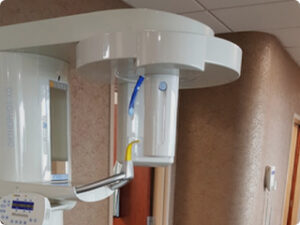When Michael invested $15,000 in dental implants to replace his missing molars, his first question was not about the procedure itself. It was: “How long will these actually last?”
It is a question every patient asks, and understandably so. Dental implants represent a significant financial and emotional investment. You want to know you are getting lasting value — not just a temporary fix that will need replacement in a few years.
Here is the good news: dental implants have transformed the way people restore missing teeth, offering a durable, natural-looking solution that can last for decades. In fact, many patients enjoy their implants for 25-30 years or longer — and some implants truly do last a lifetime.
At Smiles for Miles Dentistry in Brookfield, WI, patients often ask how long dental implants really last — and the answer depends on a mix of quality placement, consistent maintenance, and everyday habits that either protect or threaten your investment.
Let us explore what affects the lifespan of dental implants, what the research actually shows, and exactly how you can help yours stand the test of time.
What Makes Dental Implants So Long-Lasting? Understanding the Science
To understand why implants can last so long, you first need to understand what makes them fundamentally different from other tooth replacement options.
The unique two-part design: Unlike traditional bridges that rest on top of adjacent teeth, or dentures that sit on your gums, dental implants replace both the visible crown and the tooth root beneath the gumline. This root replacement is what makes implants so remarkably durable.
Each implant consists of three components:
- The implant post: A titanium screw surgically placed into your jawbone, serving as an artificial root
- The abutment: A connector piece that attaches to the implant and holds the crown
- The crown: The visible tooth-colored restoration that looks and functions like a natural tooth
The osseointegration advantage: The implant post is made from titanium, a biocompatible material that has a unique property — your bone actually fuses with it through a biological process called osseointegration. Over 3-6 months following placement, your bone cells grow around and bond with the titanium surface, creating an incredibly strong foundation.
This biological fusion is what gives implants their exceptional stability and longevity. Once fully integrated, an implant can withstand up to 200 pounds of chewing force — similar to natural teeth.
How they compare to alternatives:
- Traditional bridges: 5-15 years average lifespan; require grinding down healthy adjacent teeth
- Dentures: 5-10 years before needing replacement; do not prevent bone loss
- Dental implants: 20-30+ years or lifetime with proper care; preserve bone and adjacent teeth
This strong foundation is what makes implants one of the most reliable tooth replacement options available today. With proper care, many Brookfield patients enjoy their dental implants for decades, and some truly do last a lifetime.
What the Research Shows: Success Rates and Long-Term Data
The medical literature on dental implants is extensive and encouraging. Let us look at what the actual data tells us about how long implants last.
Published success rates: When dental implants are placed by experienced professionals and maintained properly, their success rate exceeds 95 percent, according to the American Dental Association. Some studies report success rates as high as 98 percent for implants placed in healthy patients with adequate bone density.
Long-term survival data from clinical studies:
- 10-year survival rate: 90-95 percent of implants still functioning
- 15-year survival rate: 85-90 percent still intact
- 20-year survival rate: 80-85 percent remaining successful
- 25+ years: Many implants continue functioning well beyond this timeframe
What this means for you: If you receive a dental implant at age 40, there is an excellent probability it will still be functioning when you are 60, 65, or even older. Many patients never need replacement. The crown portion may eventually need replacement due to normal wear (typically after 10-15 years), but the implant post itself often remains stable for life.
These are not just theoretical numbers — they represent real patient outcomes tracked over decades in peer-reviewed research.
Factors That Influence How Long Your Implants Last
While implants have impressive longevity potential, several factors can either extend or shorten their lifespan. Understanding these variables helps you make choices that protect your investment.
1. Oral Hygiene Habits: The Most Critical Factor
The number one predictor of implant longevity is how well you care for them. Poor oral hygiene leads to peri-implantitis — a bacterial infection similar to gum disease that attacks the tissue and bone surrounding your implant.
Essential daily practices:
- Brush twice daily for two minutes using a soft-bristle toothbrush and low-abrasive toothpaste
- Floss around implants daily — bacteria can accumulate just like around natural teeth
- Use interdental brushes or water flossers to clean hard-to-reach areas around the implant post
- Rinse with antimicrobial mouthwash to reduce bacterial load
Patients who maintain excellent oral hygiene have implant survival rates near 98 percent. Those who neglect cleaning face dramatically higher failure rates.
2. Lifestyle Choices: Smoking, Diet, and Habits
Smoking is the single biggest lifestyle threat: Tobacco use reduces blood flow to your gums, impairs healing, and significantly increases infection risk. Studies show smokers have implant failure rates 2-3 times higher than non-smokers. If you smoke, quitting dramatically improves your chances of long-term success.
Other lifestyle factors that affect implant lifespan:
- Excessive alcohol consumption: Can impair bone health and healing
- High-sugar diet: Promotes bacterial growth and gum disease
- Poor nutrition: Inadequate calcium, vitamin D, and protein weaken bone and gum tissue
- Uncontrolled diabetes: Impairs healing and increases infection risk
3. Bone Health and Density
Your jawbone provides the foundation that holds your implant stable. Strong, healthy bone is essential for long-term success.
What threatens bone health:
- Untreated gum disease: Destroys bone tissue around teeth and implants
- Missing teeth left unreplaced: The bone resorbs without stimulation from tooth roots
- Osteoporosis: Reduces overall bone density throughout the body, including the jaw
- Certain medications: Bisphosphonates and some osteoporosis drugs can affect bone healing
If you have experienced bone loss, bone grafting procedures performed before or during implant placement can restore adequate density and improve long-term outcomes.
4. Bite Pressure and Bruxism (Teeth Grinding)
Grinding or clenching your teeth — a condition called bruxism — puts excessive stress on dental implants. Over time, this constant pressure can damage the implant components or cause bone loss around the implant.
Signs you might grind your teeth:
- Waking with jaw pain or headaches
- Worn, flattened, or chipped teeth
- Tight, sore jaw muscles
- Your partner hears grinding sounds while you sleep
How to protect your implants: A custom night guard can protect your implants while you sleep by cushioning the grinding forces. This simple device can add years to the life of your implants and prevent costly damage.
5. Regular Professional Dental Care
Even with perfect home care, professional monitoring is essential for catching problems early — before they threaten your implant.
What happens during implant checkups:
- Visual examination of gum tissue around implants for signs of inflammation
- Probing to measure pocket depths and detect early infection
- X-rays to monitor bone levels around implants
- Professional cleaning to remove plaque and tartar your toothbrush cannot reach
- Assessment of bite alignment and implant stability
Seeing your dentist every six months at Smiles for Miles Dentistry allows early detection of issues that could affect implant longevity. Many problems are easily correctable when caught early but can lead to implant failure if left untreated.
How to Maintain Your Dental Implants: A Practical Daily Routine
The great news is that caring for dental implants is not complicated — it is almost identical to caring for your natural teeth, with a few additional considerations.
Your daily morning routine:
- Brush for two full minutes using a soft-bristle toothbrush
- Pay special attention to the gumline around implants where bacteria accumulate
- Use low-abrasive toothpaste — avoid whitening toothpastes that may scratch implant surfaces
- Floss carefully around each implant using unwaxed floss or implant-specific floss
Your evening routine:
- Repeat thorough brushing for two minutes
- Use an interdental brush or water flosser to clean around the implant posts
- Rinse with antimicrobial mouthwash
- If you grind your teeth, insert your custom night guard before bed
Dietary considerations: Maintain a balanced diet rich in calcium (dairy, leafy greens), vitamin D (fatty fish, fortified foods), and protein (lean meats, beans, nuts) for optimal bone and gum health. Limit sugary foods and beverages that promote bacterial growth.
When implants are maintained properly through these simple daily habits and regular professional care, their success rate exceeds 95 percent and most last for decades.
Can Dental Implants Fail? Understanding Complications and Warning Signs
While dental implants have excellent success rates, complications can occur. Understanding the difference between early and late failure helps you recognize warning signs and seek treatment promptly.
Early failure (within first 3-6 months): This usually happens if the bone does not properly fuse with the implant during the initial healing phase. Risk factors include smoking, inadequate bone density, infection, or excessive movement during healing.
Signs of early implant failure:
- Implant feels loose or mobile
- Severe pain that worsens instead of improving
- Swelling or inflammation that persists beyond normal healing
- Pus or discharge around the implant site
Late failure (after successful integration): This can result from poor hygiene leading to peri-implantitis, severe bruxism, trauma from injury, or systemic health changes. Late failures are often preventable with proper care and monitoring.
Warning signs to watch for:
- Bleeding or swollen gums around the implant
- Increasing pocket depths measured at dental visits
- Bone loss visible on X-rays
- Implant feeling slightly loose or different
- Discomfort when chewing on that area
The best prevention strategy: Follow your dentist care instructions meticulously, especially during the first few months of healing. Keep up with regular checkups every six months. At Smiles for Miles Dentistry, we closely monitor healing progress and provide personalized aftercare guidance to ensure lasting success.
If you notice any concerning symptoms, contact your dentist immediately. Many problems are reversible when addressed early but can lead to implant loss if ignored.
Implant Crown vs. Implant Post: Different Lifespans
One important distinction many patients do not realize: the implant post and the crown on top of it often have different lifespans.
The titanium implant post: Once fully integrated into your jawbone, the implant post itself can truly last a lifetime. The titanium does not decay, and the bone fusion remains stable for decades. This is the part that can last 30+ years or permanently.
The dental crown: The crown attached to the implant experiences normal wear from chewing, grinding, and daily use. Depending on the material (porcelain, zirconia, or porcelain-fused-to-metal) and your habits, crowns typically last 10-15 years before needing replacement.
This is normal and expected — just like natural teeth can need crowns or fillings over time, implant crowns may eventually need replacement due to wear, chipping, or aesthetic changes.
The good news: Replacing an implant crown is far simpler and less expensive than the original implant placement. The post stays in place, and a new crown is fabricated and attached. Most patients find this to be a straightforward procedure.
Why Brookfield Patients Trust Smiles for Miles Dentistry
The longevity of your dental implants starts with expert placement. Dr. Salm and the team at Smiles for Miles Dentistry have years of experience restoring smiles with custom dental implants that look, feel, and function like real teeth.
What sets our Brookfield practice apart:
- Advanced 3D cone beam CT imaging for precise implant planning and placement
- High-quality titanium implants and durable crown materials that stand the test of time
- Meticulous surgical technique that maximizes osseointegration success
- Comprehensive aftercare instructions tailored to your specific situation
- Long-term monitoring to catch and address any concerns early
- Compassionate, individualized care from consultation through final restoration
From advanced technology to personalized care, every step of your treatment is designed for comfort and long-term success. Our Brookfield office uses precise diagnostic imaging and proven protocols to ensure your implants last as long as possible — and we will always take the time to explain your options clearly and answer your questions thoroughly.
Invest in a Smile Built to Last
Dental implants represent one of the best investments you can make in your oral health and quality of life. With proper placement, consistent maintenance, and healthy habits, your implants can serve you well for 25-30 years or even a lifetime.
The key is choosing an experienced dental team who uses quality materials and proven techniques — then committing to the simple daily care routines and regular checkups that protect your investment.
Making your decision: If you are considering dental implants in Brookfield, WI, trust the experienced team at Smiles for Miles Dentistry. We will evaluate your oral health, discuss your goals, assess your bone density, and help you create a restoration built to last decades.
Schedule Your Implant Consultation
Call (262) 548-3555 to discuss your tooth replacement options with Dr. Salm.
Request an Appointment Online
Convenient scheduling for busy Brookfield residents and families.
Learn About Your Options
We will explain what to expect, answer your questions about longevity and care, and create a personalized treatment plan.
Your smile deserves a solution that will last. Let us help you understand what makes dental implants so durable, how to protect them, and why Brookfield patients trust our team for this important investment.
Restore your confidence with dental implants designed to stand the test of time. Schedule your consultation today.





